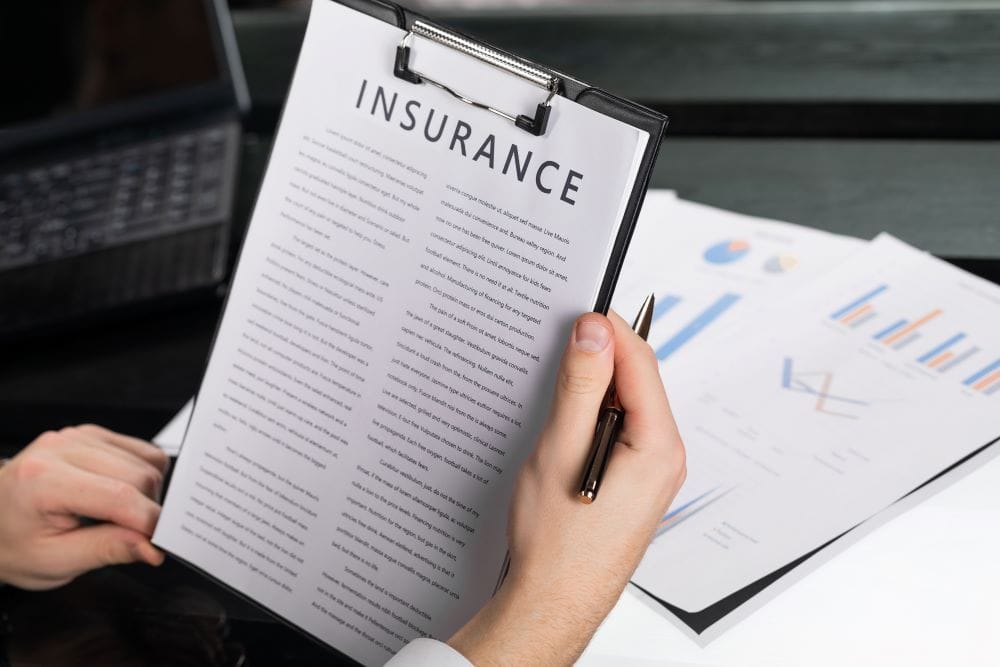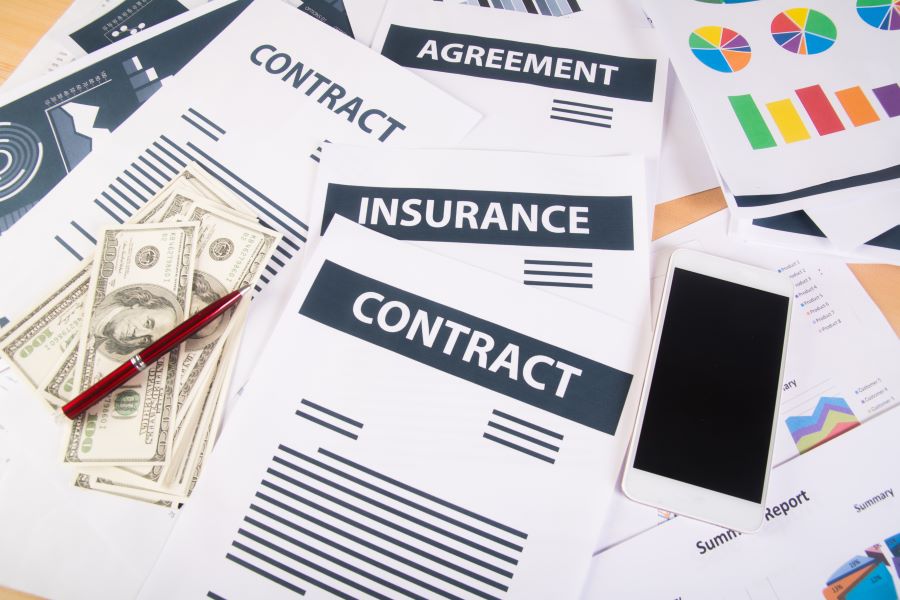
Imagine this situation: You’ve been in a car accident in Nevada, and it’s left you shaken and anxious. Your first instinct is to contact your insurance company, hoping they’ll swoop in to save the day. But life gets busy, and you might start to wonder, “What happens if you ignore an insurance claim?”
Ignoring an insurance claim can have significant consequences, and it’s essential to understand the potential ramifications for both policyholders and insurance companies. In this article, we’ll discuss the topic and explore the steps, pitfalls, and consequences associated with neglecting this critical process.
Legal Obligations for Insurers
When it comes to insurance claims, whether you’re in Nevada or anywhere else in the United States, there’s a legal framework in place. Nevada’s Insurance Code outlines the rules that govern insurance claims in the state. Insurance companies are obligated to adhere to these regulations, and they owe policyholders a duty of good faith and fair dealing.
Duty of Good Faith and Fair Dealing: Your insurance company has a legal obligation to act in good faith and deal fairly with your claim. This means they must not unreasonably delay or deny a claim without a valid reason.
Timely Response Requirements: Insurance companies must acknowledge the receipt of your claim promptly and begin the investigation process. A delayed response can lead to trouble for the insurer.
What Happens If You Ignore an Insurance Claim?
Ignoring an insurance claim may result in denial of coverage and potential legal or financial consequences. Let’s discuss these in details:
Denied Claims: If you ignore the claim process, your insurance company might deny your claim altogether. This means you’re left to bear the financial burden of the accident, including medical bills and property damage.
Delayed Claims: Ignoring the claim might lead to delays in processing, causing you to wait longer for the compensation you’re entitled to. This delay can exacerbate the stress of the situation.
Potential Litigation: If you believe your insurance company is not handling your insurance claim in good faith and fair dealing, you may decide to take legal action against them. This can involve filing a lawsuit, which can be a time-consuming and costly process.
Common Scenarios in Nevada
Let’s examine a few common scenarios involving insurance claims in Nevada to provide you with a clearer picture of what could happen if you ignore a claim:
Car Accidents:
Car accidents are a frequent cause of insurance claims. If you’re involved in a car accident, it’s essential to contact your insurance company promptly. Failing to do so may result in delays in covering medical bills, property damage, and other accident-related expenses.
Uninsured Motorist Coverage:
If you’re in a collision with an uninsured or underinsured driver, you need to involve your own insurance company and file a claim against your uninsured motorist coverage. Ignoring this step can leave you responsible for the costs.
Insurance Adjuster Involvement:
Insurance adjusters play a critical role in the claims process. If you don’t contact your insurance company, they won’t assign an adjuster to assess the damage and injuries, potentially leading to complications down the road.
Third-Party Insurance Claims:
In some cases, the at-fault driver’s insurance company may be responsible for your claim. Ignoring their insurance company’s requests for information or recorded statements can affect the outcome of your claim.
Insurance Policy Review:
Understanding your insurance policy is essential to know your rights and obligations. Failing to review your policy after an accident can lead to misunderstandings and disputes with your insurance provider.
How Do You Seek Compensation Even if Its Not Your Fault ?
If you ignore an insurance claim but it’s not your fault after an incident, you may be inadvertently harming your chances of receiving the compensation you are entitled to. It’s essential to remember that the other party’s insurance company is responsible, not yours, they should cover your damages and losses if you’re not at fault. Here’s what you should do:
Exchange Information: Regardless of the severity of the accident or incident, it’s crucial to exchange contact and insurance information with the responsible party. This information typically includes names, addresses, phone numbers, and insurance policy details. Ensure you have accurate and complete information.
Document the Scene: If it’s safe to do so, document the scene of the accident or incident. Take photographs of the vehicles involved, any visible damage, the location, road conditions, and any relevant traffic signs or signals. This documentation can serve as valuable evidence and help in collision coverage later.
Gather Witness Information: If there are witnesses to the incident, collect their contact information. Witnesses can provide statements that support your version of events and help establish liability.
Report the Incident: Contact the responsible party’s insurance company to report the incident as soon as possible. Provide them with the necessary information about the incident, including your account of what happened and the damages or injuries you’ve incurred.
Seek Medical Attention: If you’ve sustained injuries in the incident, seek prompt medical attention. It’s essential to document your injuries and receive proper medical care. Medical records can serve as evidence to support your insurance claim.
Contact Your Insurance Company: Notify your own insurance company about the incident, even if the other party is clearly at fault. Your insurance company can guide you through the claims process and potentially offer coverage under certain provisions of your policy, such as uninsured or underinsured motorist coverage.
Cooperate with the Investigation: Be prepared to cooperate with the other insurance company investigation. They may request additional information, statements, or documentation to evaluate your claim.
Engage Legal Counsel: If you encounter challenges or disputes with the responsible party’s insurance company, it’s advisable to consult with a personal injury attorney. An attorney can protect your rights, negotiate on your behalf, and represent your interests in case of a lawsuit.
Keep Detailed Records: Maintain organized records of all documents related to the incident and your claim, including medical bills, repair estimates, correspondence with the insurance company, and any other relevant information.
Follow the Claims Process: Follow the claims process outlined by the responsible party’s insurance company. This typically involves providing documentation, attending medical evaluations if required, and working with their claims adjusters to reach a settlement.
Settlement Negotiations: If the responsible party’s insurance company offers a settlement, carefully review the terms and consider seeking legal advice before accepting or rejecting it. Ensure the offered settlement covers all your medical expenses, property damage, and other losses.
Remember that insurance claims can be complex, and insurance companies often aim to minimize their payout. Seeking legal advice from a personal injury attorney is a prudent step to ensure you receive fair compensation for your injuries and damages when the other party is responsible for the insurance claim.
What If the At-Fault Driver Won’t Contact Insurance Company?
If the at-fault driver in a car accident refuses to contact their insurance company, it can complicate the claims process for all parties involved. In such cases, it’s important for the other driver, who is not at fault, to take proactive steps to protect their interests. Typically, the affected party should contact their own insurance company to report the accident and initiate the claims process.
This is often done through their uninsured motorist coverage if the at-fault driver is uninsured or underinsured, or it can involve filing a claim against the at-fault driver’s insurance if they eventually provide their insurance information. While it may create some complexities, prompt action is crucial to ensure that the innocent party receives the compensation they are entitled to for medical expenses, property damage, and other accident-related costs.
It’s advisable to consult with an experienced personal injury attorney to navigate these situations, as they can help guide you through the process and negotiate on your behalf, if necessary, to secure a fair settlement.
What If the Other Driver’s Insurance Won’t Pay?
If the other driver’s insurance won’t pay for your damages and expenses, it can be a frustrating and challenging situation. In this scenario, there are several steps you can take to address the issue:
Check Your Policy: Review your insurance policy for coverage, such as uninsured or underinsured motorist coverage, which could help if the at-fault driver’s insurance won’t pay.
Inform Your Insurance: Report the situation to your insurance company, providing all relevant details. They’ll investigate and determine if your policy can cover the costs.
Consult an Attorney: If your insurer can’t secure compensation or if you’re unsatisfied, consult a personal injury attorney. They can negotiate with the other driver’s insurance or pursue legal action on your behalf.
Small Claims Court: Consider filing a lawsuit in small claims court to recover damages if negotiations fail.
Document Expenses: Keep meticulous records of all accident-related costs, bolstering your case during negotiations or legal proceedings.
Persist: Continue communication with your insurer and attorney, ensuring your rights are upheld. Insurers have a legal duty to act in good faith when processing claims, and bad faith behavior can be legally challenged.
What If the Other Driver’s Insurance Company Doesn’t Accept Fault?
If the other driver’s insurance company doesn’t accept fault for an accident where their policyholder was clearly responsible, it can lead to a frustrating and complex situation. In such cases, it’s essential to gather as much evidence as possible to support your claim.
This may include witness statements, photographs, and the official police report. You should also communicate with your own insurance company and inform them of the situation, providing them with the evidence of the other driver’s fault. Your insurer can then engage with the at-fault driver’s insurance to resolve the dispute.
If the disagreement persists, you may need to consider legal action and consult with a personal injury attorney. Legal representation can be invaluable in navigating the complexities of such disputes, ensuring your rights are protected, and pursuing the compensation you deserve for medical bills, property damage, and other accident-related expenses.
Insurance Company Rejected My Claim. Should I File a Lawsuit?
If the at-fault driver’s insurance company has denied your claim and you believe that their decision is unjust, you may consider filing a lawsuit against them. However, before proceeding with a lawsuit, it’s essential to evaluate a few factors:
Policy Limits:
Verify whether the denial is based on the at-fault driver’s policy limits. If their coverage is insufficient to fully compensate you for your damages, a lawsuit against the insurance company may not be the most practical course of action, as they can only pay up to their policy limits.
Claim Denial Grounds:
Understand the specific reasons for the claim denial. If the insurance company’s denial is reasonable and aligns with the terms and conditions of their policy, a lawsuit may be less likely to succeed.
Bad Faith:
If you believe the denial is in bad faith, meaning the insurance company acted unreasonably or unfairly, you may have stronger grounds for a lawsuit. Bad faith actions can include unjustified delays, wrongful denial, or other unethical practices.
Consult an Attorney:
To make an informed decision, it’s highly advisable to consult with a personal injury attorney experienced in insurance claim disputes. They can evaluate the circumstances, assess the strength of your case, and guide you on the best course of action. An attorney can also negotiate with the insurance company on your behalf, potentially resolving the issue without the need for a lawsuit.
Legal Costs and Time:
Consider the costs and time involved in pursuing a lawsuit. Legal action can be time-consuming and expensive. It’s essential to weigh these factors against the potential outcome of a successful lawsuit.
The Importance of Legal Representation
Navigating the complex world of insurance claims in Nevada can be challenging, especially if you find yourself in a dispute with your insurance company. In such cases, an experienced personal injury attorney can be your greatest ally. They can help you understand your rights, negotiate with your insurer, and even take legal action on your behalf if necessary.

Hire an Experienced Personal Injury Attorney at BLG
In Nevada, as in many other states, ignoring an insurance claim is not a risk worth taking. It’s vital to understand your legal obligations and the potential consequences of neglecting these responsibilities.
To protect your interests, consider consulting with an experienced personal injury attorney if you’re unsure about your claim or encounter issues with your insurance company. In the world of insurance, knowledge is power, and having the right legal counsel can make a significant difference in the outcome of your claim. Don’t wait until it’s too late – act promptly and protect your rights in the event of an accident.
Whether you’re dealing with the aftermath of a car accident, a denied insurance claim, or any insurance-related dispute in Nevada, our team of experienced personal injury attorneys at BLG is here to help. Don’t let the complexities of insurance claims overwhelm you – take action and ensure your rights are protected.
Contact us for a free consultation and let us guide you through the legal process, advocating for the best possible outcome in your case. Your peace of mind is just a call away.





